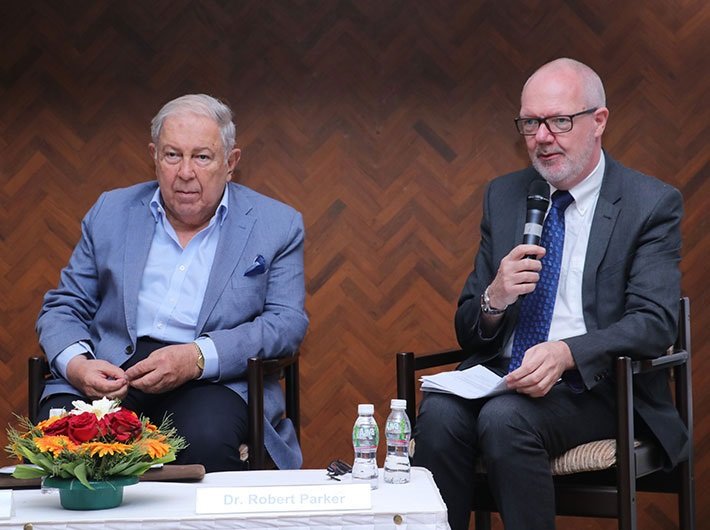Cipla Chairman Dr Yusuf Hamied donates Rs 8.7 Crore to Royal Society of Chemistry for next leg of Inspirational Science Programme.
Calling for a pragmatic and compulsive licensing system in healthcare, chairperson, Cipla, Dr Yusuf Hamied said that government must formalise essential drugs. Making a strong voice for compulsory licensing and voluntary licensing to make medicine affordable, he said that when a multinational company does not give individual license for essential drugs the government should step in, ask for license and give royalty payment. “Science has to be rewarded but not denied,” he said.
Citing the example of multinational company, Gilead Sciences Inc.– that entered into voluntary licensing agreement against royalty payment for Hepatitis-C drug 'Sofosbovir' which brought down prices for patents in India – he said that out of the world’s 50 top selling drugs, 70 percent are made and marketed by companies that did not invent them and are in-licensed. “India should in-license. With 1.35 billion people in our country who cannot afford monopoly and despite very high malnutrition in India, Vitamin B1, B2, B6 Vitamin D, Vitamin E and Vitamin C are not made in India. We have to be self-reliant and not self-sufficient,” said the renowned scientist and business leader. He was announcing his continued support and expansion of Inspirational Science Programme along with the Royal Society of Chemistry (RSC) in India with a donation of Rs 8.7 crore.
The four year programme will train 20,000 teachers covering most regions in India and reach out to 2,400 under privileged students under Salters’ Chemistry Camps. Since its first phase, which started in Bangalore, the Yusuf Hamied Inspirational Chemistry Programme has trained 23,000 science teachers across 9,000 schools in 26 states between 2014 and 2018. More than 1,600 students from 500 schools attended 26 Salters’ Chemistry camps.
The four year programme will provide Indian teachers new tools for delivering engaging and effective science lessons and encourage students to reach the necessary standards to study science at university. “A main part of the new programme will be to explore the introduction of three new key enhancements, to translate teacher training content into selected local languages, to develop training modules to cover additional specific disciplines and to explore how mobile access to the Royal Society of Chemistry’s teaching resources could complement the programmes aims. After an exploratory phase, implementation of any additional activities would commence from 2020 onwards,” said Dr. Robert Parker, chief executive of the Royal Society of Chemistry.
Speaking to Governance Now Dr Parker said, “Science can be a creative and fulfilling career for children and have benefits for the world. India has massive talent that could be working on inspirational chemistry as we need chemistry developments to make life better – be it in the area of health care, renewable energy or environment. With 23,000 teachers in its first phase, it was three times the original number of teachers we had set out to train. The programme is developed from feedback received by the teachers in India to make it more relevant and suitable for them and the children they are trying to engage with.”
Dr Hameid added that the next programme will be practical in nature and adapt to India’s needs particularly in the area of medicines. “We are toying with the idea to see how chemistry can be taught long distance and asked RSC to expand it into science. Along with science programmes, students will be taught to develop skills and use the knowledge imparted to be more productive. Our next set up with RSC is how we get in technology we don’t have in India to make some older drugs that we are not producing,” he said.

